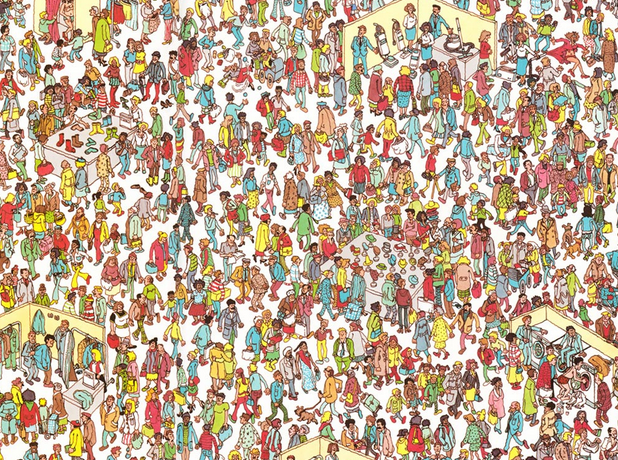In spite of being geared as a delightfully fun mental challenge for children ages five to nine, Where’s Waldo? bears the indelible mark of making one realize just how inconsequential he is–a sobering revelation during the tenderness of childhood.

Created by children’s illustrator Martin Handford in 1986, Where’s Waldo? (or Where’s Wally? as it is originally known in Britain) is by far one of the most overt examples of one’s early exposure to how utterly insignificant and interchangeable each of us are. Not only exhibiting the cluster fuck of humanity, Waldo shows us that blending in with the crowd is easy, no matter how distinct you appear to be.

It isn’t just Waldo himself that represents the infinitesimal nature of his universe and our own. Other characters in his world, specifically Wilma and Wendy, also embody how substitutable human beings are. Although Waldo is initially friends with Wilma, he ultimately replaces her with her twin sister, Wendy, in subsequent incarnations of the story.

Moreover, even Waldo’s nemesis has that Mario/Wario thing going on. His name is Odlaw (Waldo spelled backwards in case you couldn’t tell) to really hit the point home that the two are just foils for one another. Where Waldo has red and white striped clothing, Odlaw has black and yellow. They’re simply two sides of the same coin, another way in which Handford manages to none too subtly tell us how similar we are to one another, exhibiting no true uniqueness other than in vague sartorial differences.

While one gets the sense that Handford is fucking with us on manifold levels, perhaps he is simply the only one left in this life who has accepted its meaninglessness–and is therefore perfectly all right with being the one to spread this message to the rest of us.





















